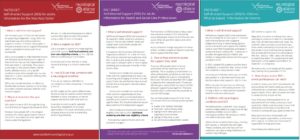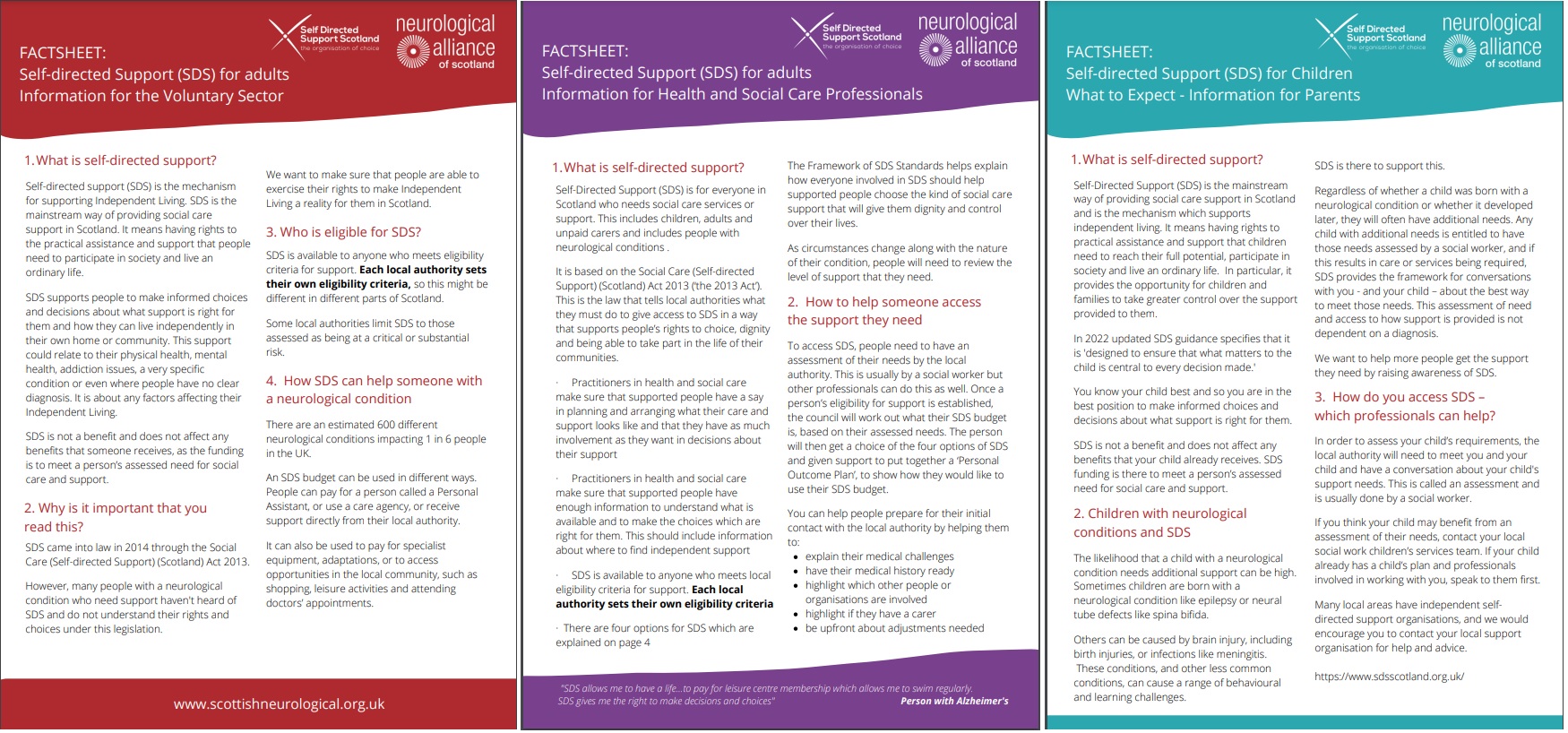New SDS Factsheets from the Neurological Alliance
Helping people with neurological conditions access the support they need
About 1 in 6 people in Scotland live with a neurological condition. Conditions of the brain and spine can cause severe impairments, and those with complex conditions can need a lot of support to undertake everyday tasks and support their independence. But many individuals and families are missing out on the opportunity to have a say in how they receive this care, the support they need and from whom.
The Neurological Alliance of Scotland (NAoS) in conjunction with Self-Directed Support Scotland have published three new factsheets to help address this problem. The resources will support key workers to guide people with neurological conditions to access Self-Directed Support (SDS), which is the way social care is delivered in Scotland. SDS aims to give people choice and control over their own support.
These factsheets are designed to raise awareness of SDS amongst three groups who are in a position to support people living with a neurological condition:
- health and social care professionals
- voluntary sector workers and
- parents of children with neurological conditions
The Neurological Alliance believe that doctors, nurses and allied health professionals such as occupational therapists and physiotherapists have a vital role to play in enabling people with neurological conditions to access self-directed support. Some people with complex neurological conditions have their main link with NHS professionals and may not be in contact with social workers or the social care system. They depend on the information they get from NHS professionals to know what their options are.
Voluntary sector workers can be the first port of call for people with a new diagnosis or who care for someone recently diagnosed with a neurological condition. Many people with a neurological condition who need support haven’t heard of SDS and do not understand their rights and choices under this legislation and charities can help support individuals and families to make the choices that are right for them.
The third factsheet is aimed at parents of children with neurological conditions. Children who have additional needs related to their neurological condition are likely to be eligible for SDS, regardless of whether the child was born with a condition or it developed later.
Alice Struthers, Programme Director of the Neurological Alliance of Scotland said: “We are pleased to publish these three factsheets in collaboration with SDS Scotland. People living with a neurological condition are some of the most vulnerable in society and many are struggling to get by, particularly at the moment with the cost-of-living crisis. By guiding key workers and parents to the financial support and choices that are available to disabled people, including people with neurological conditions, we hope that the result is that more people are able to make decisions about how they want the care that they need to be delivered. SDS is not only available to those with neurological conditions – it is also an option available to carers. We want to see more people being provided with the support that they need to live independently at home and in their communities.”
Mark Han-Johnston of SDS Scotland said “Self-Directed Support has been the mainstream approach to delivering social care in Scotland since 2014. However, we are still aware that many people struggle with navigating the social care system and knowing where to go to get started. We hope these factsheets will help more people understand their rights and how to access the support they need, and to be able to exercise choice and control over that support. One of our main priorities as an organisation is to increase access to SDS for people that still face significant barriers when trying to do so. We are therefore delighted to have worked with the Neurological Alliance of Scotland to ensure more people with neurological conditions and their families, get the support they need.”
Factsheet 2: Self-directed Support (SDS) for adults: Information for the Voluntary Sector
Factsheet 3: Self-directed Support (SDS) for Children: What to Expect – Information for Parents


